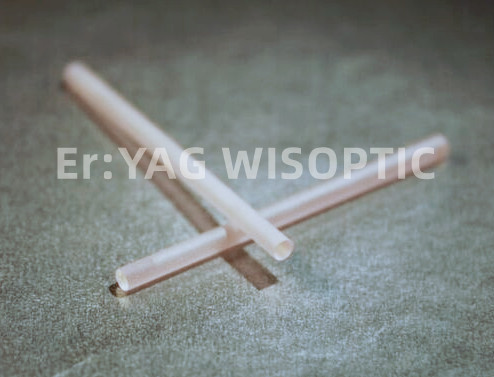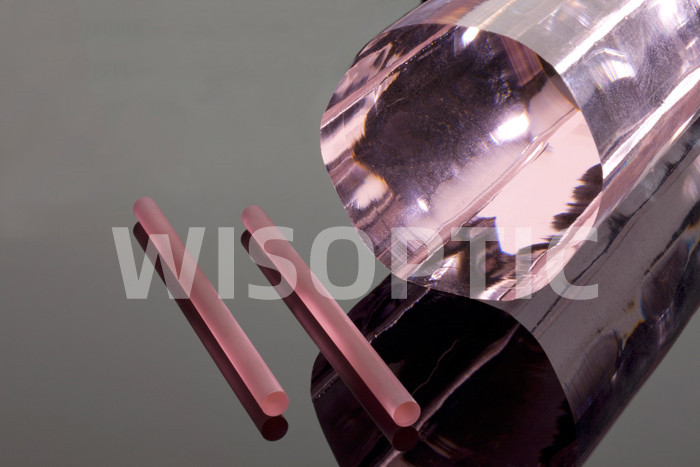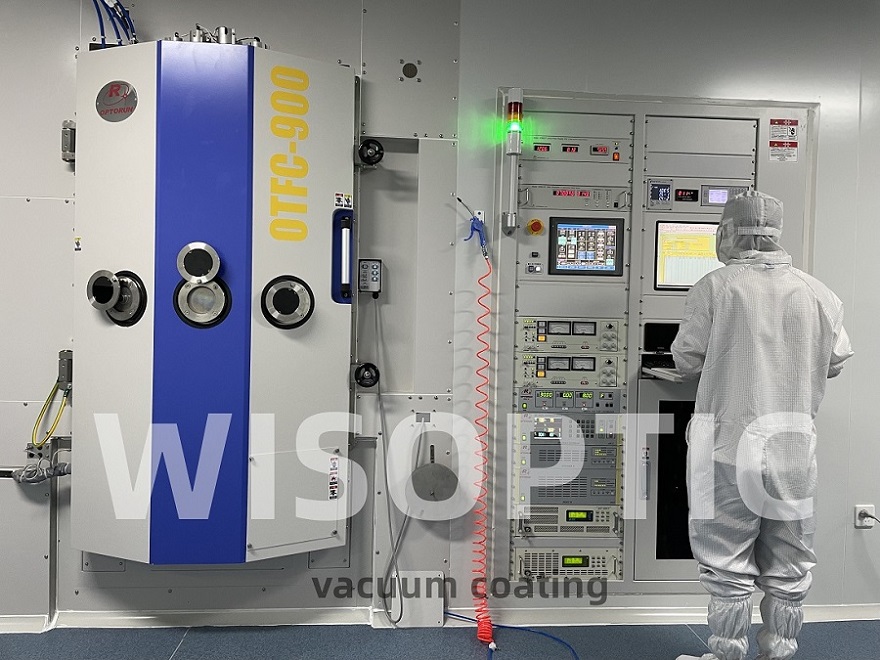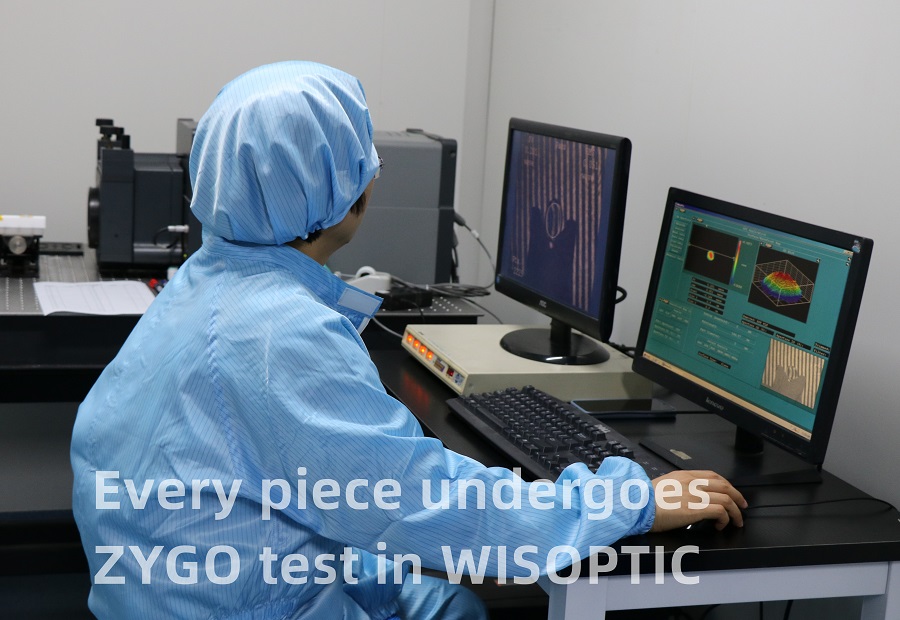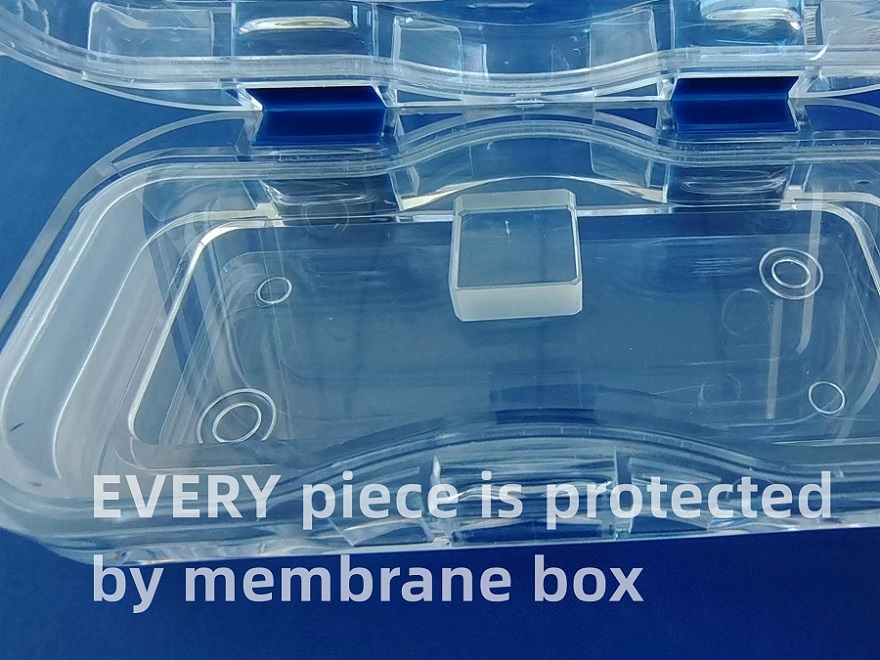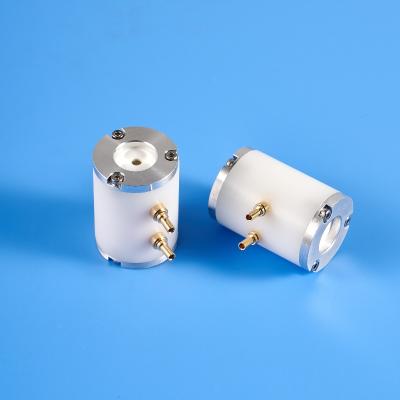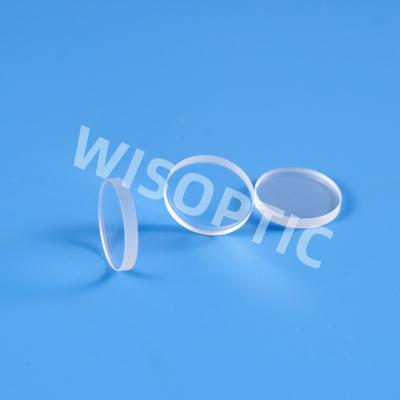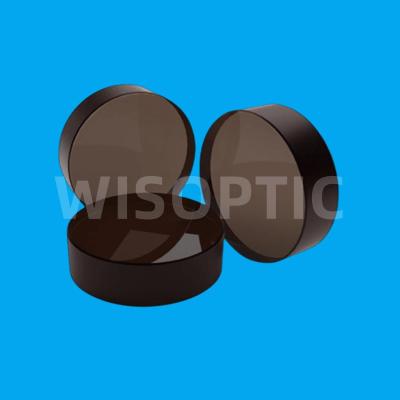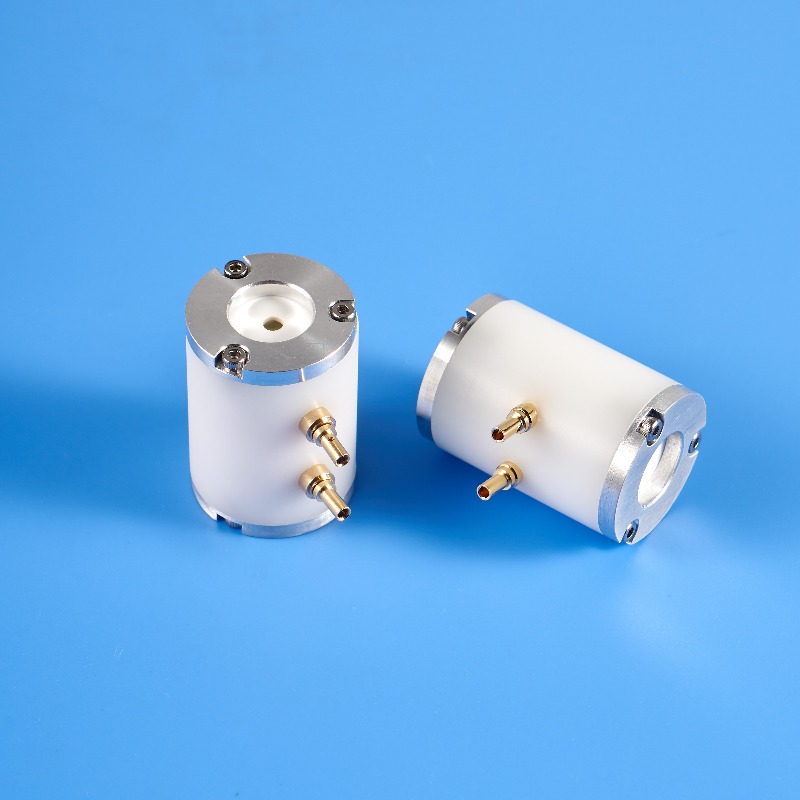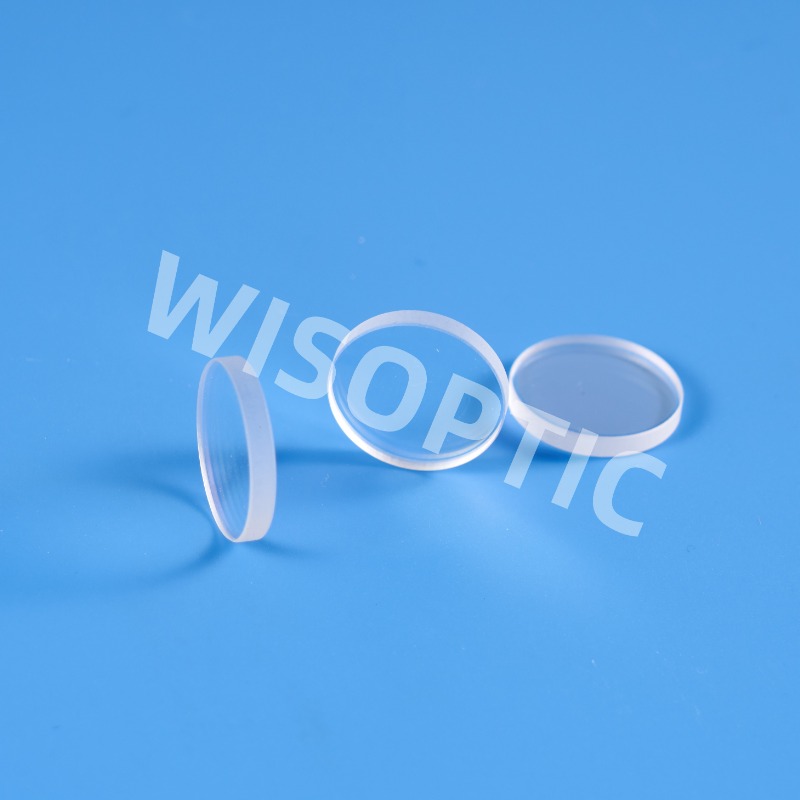Er:YAG Crystal
Advantages of Er:YAG Crystals Made By WISOPTIC
Isotropic crystal (cubic symmetry)
High thermal conductivity
Strong absorption bandwidth near 1470 nm corresponding to InGaAsP/InP laser diode emission
Emission spectra at 1617 nm is free from absorption in the atmosphere
Sizes from 3 mm to 10 mm diameter, with lengths up to 150 mm long
Highly doped (50%) Erbium YAG is a well-known laser source for producing 2940nm emission, commonly used in medical (e.g. cosmetic skin resurfacing), and dental (e.g. oral surgery) applications due to the strong water and hydroxapatite absorption at this wavelength.
Low doped (< 1%) Erbium YAG hase been studied as an efficient means to generate high power and high energy 1.6 micron 'eye-safe' laser emission thru 2 level resonant pumping schemes. In these systems, fiber or diode lasers pump the ~1.5 micron absorption band, where non-raditive coupling between stark levels allows 1.6 micron laser emission with quantum efficiencies in excess of 90%.
Application examples
CW and Q-switched eye-safe (~1.6 μm) in-band pumped lasers with nearly quantum defect limited efficiency for military applications including LIDAR, telemetry, or active imaging
Channel waveguide eye-safe (~1.6 µm) in-band pumped lasers with diffraction-limited output for long-distance telemetry and ranging
CW and Q-switched ~3 µm lasers for oral surgery, dentistry, implant dentistry, and otolaryngology
Dopant Ion
Er3+ concentration range | 0.1 - 100 atomic % |
Dopant Ion Density @ 1 atomic % | |
Y3+ Site | 1.38 x 1022 cm-3 |
Al3+ Site (IV) | 1.38 x 1022 cm-3 |
Al3+ Site (VI) | 0.92 x 1022 cm-3 |
Common Operating Specs
50% Er:YAG | Low Doped (0.1% - 1.0%) Er:YAG | |
Emission Wavelength | 2.94 μm | 1.6 μm |
Laser Transition | 4I11/2 → 4I13/2 | 4I13/2 → 4I15/2 |
Flouresence Lifetime | 230 μs | 2+/-5 ms |
Pump Wavelength | 600-800 nm | 1.5 μm |
Physical Properties
Coefficient of Thermal Expansion | 6.14 x10-6 K-1 |
Thermal Diffusivity | 0.041 cm2•s-2 |
Thermal Conductivity | 11.2 W•m-1 •K-1 |
Specific Heat (Cp) | 0.59 J•g-1•K-1 |
Thermal Shock Resistant | 800 W•m-1 |
Refractive Index @ 632.8 nm | 1.83 |
dn/dT (Thermal Coefficient of Refractive Index) @ 1064nm | 7.8 10-6•K-1 |
Molecular Weight | 593.7 g•mol-1 |
Melting Point | 1965°C |
Density | 4.56 g•cm-3 |
MOHS Hardness | 8.25 |
Young’s Modulus | 335 Gpa |
Tensile Strength | 2 Gpa |
Crystal Structure | Cubic |
Standard Orientation | <111> |
Y3+ Site Symmetry | 8D2 |
Lattice Constant | a=12.013 Å |

